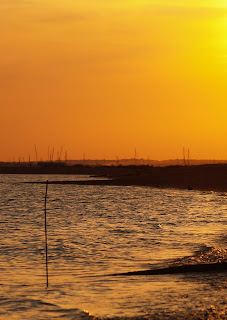… is how a friend described yesterday’s effort. Now up on my sermons blog.
Monthly Archives: September 2010
TBTM20100913
GOP20100912
So…
So we have a new baby at the moment – and sleep is somewhat disturbed – particularly last Wednesday night when I woke up at about 2am and couldn’t get back to sleep with brain buzzing about certain questions. So today – having gone to bed at about 7.30 last night and managed a good ten hours of sleep (w00t!) – and getting re-centred in worship this morning, and pondering the eternal truths like ‘love your neighbour as yourself’ – I’m starting to wonder “what planet was I on?”
(Not that I wouldn’t still want to defend much of my thinking – just… the sane me is not well represented there!)
Some links
Blogging the Koran on 9/11
Sura 5, ‘The Table’
27. Recite to them the truth of the story of the two sons of Adam. Behold! they each presented a sacrifice (to Allah.: It was accepted from one, but not from the other. Said the latter: “Be sure I will slay thee.” “Surely,” said the former, “(Allah) doth accept of the sacrifice of those who are righteous.
28. “If thou dost stretch thy hand against me, to slay me, it is not for me to stretch my hand against thee to slay thee: for I do fear Allah, the cherisher of the worlds.
29. “For me, I intend to let thee draw on thyself my sin as well as thine, for thou wilt be among the companions of the fire, and that is the reward of those who do wrong.”
30. The (selfish) soul of the other led him to the murder of his brother: he murdered him, and became (himself) one of the lost ones.
31. Then Allah sent a raven, who scratched the ground, to show him how to hide the shame of his brother. “Woe is me!” said he; “Was I not even able to be as this raven, and to hide the shame of my brother?” then he became full of regrets-
32. On that account: We ordained for the Children of Israel that if any one slew a person – unless it be for murder or for spreading mischief in the land – it would be as if he slew the whole people: and if any one saved a life, it would be as if he saved the life of the whole people. Then although there came to them Our apostles with clear signs, yet, even after that, many of them continued to commit excesses in the land.
33. The punishment of those who wage war against Allah and His Messenger, and strive with might and main for mischief through the land is: execution, or crucifixion, or the cutting off of hands and feet from opposite sides, or exile from the land: that is their disgrace in this world, and a heavy punishment is theirs in the Hereafter;
34. Except for those who repent before they fall into your power: in that case, know that Allah is Oft-forgiving, Most Merciful.
~~
Found this passage because I was looking for something positive in the Koran – found an extract from verse 32 – and thought I’d post the whole passage to give context. Hmmm.
For what it’s worth, I think that this is the appropriate behaviour for a church at this time.
A last thought on the koran burning
Whilst the liberal arguments against it are pap, it seems to be an action motivated in equal parts by fear and hate, tantamount to a declaration of war. Not a Godly act for a Christian pastor.
I keep thinking of a passage from Strauss & Howe’s Fourth Turning – which I can’t be bothered to look up for the exact quote right now – but the gist is that a principal sign of the shift into ‘winter’ is when people choose extreme rather than moderate reactions to a provocation, and the cycle escalates into open warfare. Oh dear.
A bit more on koran-burning
I want to round up some of the main arguments that have been employed on this question. It would be fair to say I feel ambivalent about it, but I’m still chewing it through (which is, of course, what a blog is for….)
Argument #1: it will endanger the troops (aid and succour the enemy)
On one level this is facile, in that, in a war, we assume that the enemy is trying to kill our soldiers already. It is not facile in that burning the koran will reinforce the ideology and remotivate their troops. So the good point here is not about fear but about pragmatism – you don’t give the enemy a propaganda victory.
Argument #2: it will endanger other Christians around the world
This may be true, but if so, it actually says worse things about Islamic culture, ie that a symbolic protest such as this might lead to loss of life, because the values and cultural norms are so uncivilised in such countries. So to not burn the Koran for this reason alone is simply to succumb to intimidation.
Argument #3: it’s rude and disrespectful
It undoubtedly is rude and disrespectful – it wouldn’t be worth doing if it wasn’t – but I’m not sure that ‘rude and disrespectful’ automatically make something wrong, it depends upon everything else.
Argument #4: it’s symbolic violence
Yes it is; it is not a peaceable act, it is not something that will generate good will and foster further understanding. However, again, I’m not sure that there isn’t (in principle) a place for symbolically violent behaviour. Whether such behaviour is defensible or not depends entirely on the wider context – is it simply bullying or spiritual abuse? Or is there a wider toppling of idolatries going on (leading to less abuse)?
Argument #5: We are told to love our enemies and this isn’t loving (Jesus wouldn’t do it)
If we take the feelings of the targeted audience as the end point of the process then “causing pain = not loving” follows. Jesus, however, often had a further end in view relating to the long term liberation of the people he engaged with. What this action does is totalise the argument. It’s an action which follows once reasonable discourse has come to an end (or not been started). The real question is one that Byron asked, about whether a creative and attractive alternative is being shown. The action is defensible to the extent that creative possibilities are held out (which is something that doesn’t seem to be the case here).
Argument #6: it’s ugly and stupid and childish (‘Ugh!’)
This is an expression of our cultural norms, and whilst I tend to the view that the argument from disgust shouldn’t be rejected on principle, I don’t see what it adds here. In principle (I’m abstracting again) it could be the cultural norms which are the idols needing to be toppled, just as much as any Islamist nonsense.
Argument #7: how would you like it?
What’s sauce for the goose is sauce for the gander. The difference is that the power of the act would be different, given that Christians don’t see the New Testament (fundamentalists excepted) in the way that the Islamists see the Koran. Of course, what we do see as the Word of God was treated in just such a way – he was crucified – and therein lies some of the most important differences…
Argument #8: it’s retaliation
As a motive, I would agree that this is wrong. I’d simply point out that burning books is not on a par with burning down buildings by flying planes into them.
That’s my thinking so far; I haven’t finished yet.
In defence of burning the Koran
This one might be a bit controversial… (even Sarah Palin thinks that it’s wrong!)
There is much fuss about the proposal by Pastor Terry Jones to burn some copies of the Koran on September 11th. He is, understandably, coming in for a very great deal of criticism. Book burning is, historically, just one step away from people burning. It has also been used to intimidate and suppress opposition to the ruling hierarchy, and is pretty much as anti-Enlightenment as it is possible to get. How then might it possibly be a defensible act? Here is my line of thought (and, if it needs to be said, Of Course I Could Be Wrong):
I think that it is a sin to be offended; does that also mean that it is wrong to give offence? After all, that is what is at stake here. There is no sense that the intellectual content of the Koran is at risk of being obliterated for all time due to this action. It’s simply that it is extremely rude and “insensitive”. Other things being equal, it would clearly not be right to cause such offence – but are other things equal? I think not.
Sometimes it isn’t just defensible, it is actively right to give offence. After all, giving offence is simply refusing to share in the cultural nostrums of the time – it is to go against them, to break taboos. Sometimes this is mandatory.
Consider Jesus overturning the tables in the temple and grabbing a whip to drive out the traders and their cattle. This was undoubtedly a deeply offensive act – but it was also profoundly righteous, it was an act of prophetic drama concerned with demonstrating a religious truth. In effect, it was the toppling of an idol (the contemporary temple worship) in order to proclaim the higher truth (right worship of the living God).
In doing this, Jesus was drawing deeply on the main Scriptural tradition of prophecy. As Walter Brueggemann has so eloquently described, the first and foremost task of the prophet is to teach the people that things don’t need to be the way that they are. In other words, the foundational work of the prophet is to liberate the consciousness of the oppressed – for the liberation of their bodies (the Exodus) inevitably follows. To do this requires toppling the idols of Egypt – challenging them and showing that they have no power.
I think that this is the right context in which to understand the burning of the Koran by Pastor Jones. Put at its most basic (and from a confessedly Christian point of view) it is not the case that the Koran is the Word of God – that description is only rightly applied, in the end, to Jesus. The reverence offered to the Koran by faithful Muslims is therefore (however benign in the vast majority of cases) a form of idolatry. Where such things are less benign are where this idolatry is used to buttress all sorts of other evils – such as the khawarij doctrines of thinkers like Qutb.
To burn the Koran in this context is therefore a symbolic act of tremendous power. It is to engage with the war against the militant Muslims at the level of ideas and propaganda, which is (I would argue) the most important level if this war is to be won. It might be argued that this is, in fact, a self-defeating act of propaganda – that it will alienate the moderate Muslim, and simply increase the dangers faced by our soldiers on the battlefront. I don’t find such arguments convincing. This is not Abu Ghraib – which truly was an abomination – nor do I believe that it will make much difference to enemy soldiers who are already doing all that they can to kill Westerners wherever they may be found. Exposing the ‘gods’ of the enemy to ridicule is surely part of what it means to resist dhimmitude, after all, didn’t we do the same to the Nazis in World War 2?
(‘Hitler… has only got one ball, the other… is in the Albert Hall’)
In other words, burning a Koran seems to be an act which might share in both prophetic righteousness and be pragmatically right in the context of resistance to the khawarij.
It could, however, just be an example of intolerance and bigotry. How might it be discriminated from that? How might it be shown that it is not just a form of bullying?
This is, I believe, to articulate something which has not been properly expressed by any of our leaders so far, which is about how we are to conduct this war. If it is true that this war is fundamentally a spiritual one, conducted at the level of ideas (principalities and powers) then we cannot succeed unless we are true to our own highest beliefs and ideals. Which means that whilst the burning of a Koran might be symbolically acceptable to show that it is not the Word of God, we can only give substance to this by demonstrating adherence to the true Word of God and what he taught. In other words it is absolutely imperative that we safeguard the well-being of that which bears the true image of God, ie the human being. We cannot allow a protest against idolatry to develop into a pogrom against people. If the Holocaust and all that led up to it represents the darkest heart of Western Christianity (which I believe) then we must do everything to ensure that it is never repeated. This means a rigorous regard for the human rights (civil rights) of Muslims in terms of their personal safety, but also a staunch regard for their personal property – including their Korans. A symbolic burning of a Koran might be righteous – to mutilate the Koran that belongs to a person, which has been used in their worship, to which they have become sentimentally attached – this is something else. It would be as if Jesus didn’t simply drive the traders out of the temple but that he gave each of them a bloody nose as well.
That’s why I think it might be defensible to burn a Koran on the anniversary of September 11th – it is a repudiation and ridiculing of the deathly ideology that slaughtered 3000 people. Yet it will only be truly righteous if it is also accompanied by a commitment to respecting the human and civil rights of Muslims. In the end we can only win by pursuing our best, not by indulging our worst.
The Last Exorcism
Came out of the cinema fuming – but have been having second thoughts about whether I was right to do so ever since. The first 85 minutes or so are undoubtedly excellent – suspenseful and character driven – and the first ten minutes are hilarious (favourite quote: “Lucifer was the choirmaster in Heaven” no comment ;). The last five minutes, though, threaten to undermine all the previous good work – or do they? Can’t say more without spoilers, but I’m off to do a bit of research as to the director’s intention. At least 4/5






